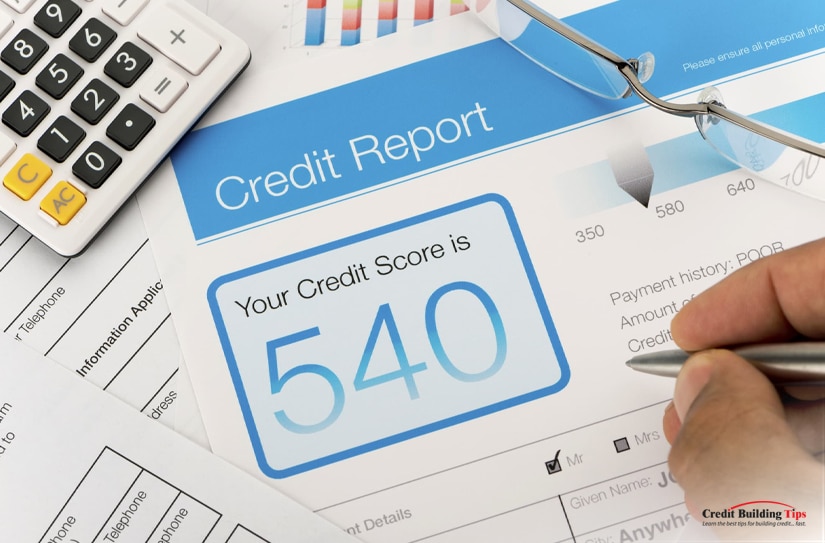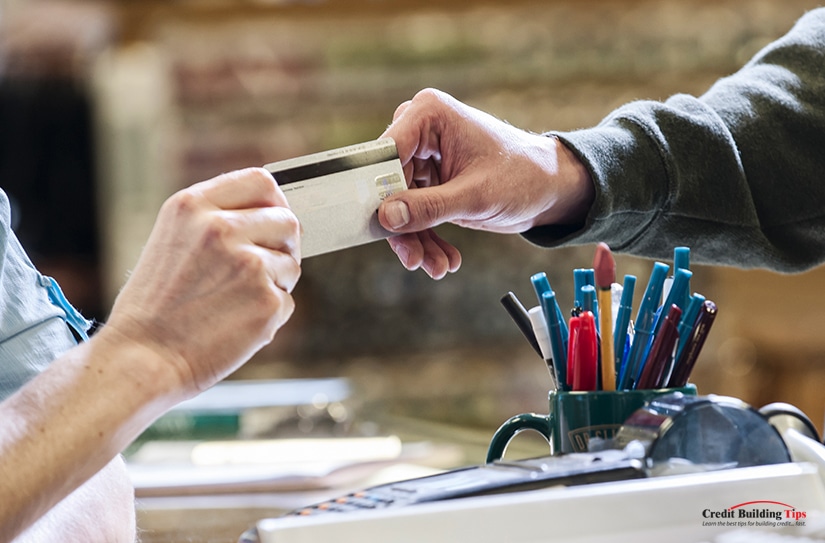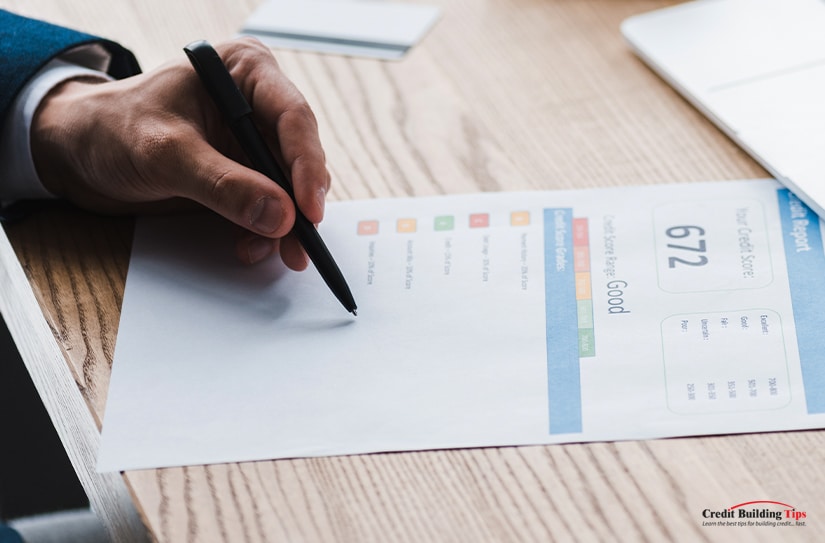It's hard to maneuver through today's world without credit. Gone are the days when you could have a cash-only life.
Now, more than ever, credit is part of your financial power. And the reality is that without it, you will find many opportunities denied to you.
Without credit, you will find it hard or simply won't be able to:
Of course, it's not enough to simply have credit.
 You need good credit. You need to build a credit history where you start with a small loan or credit limit and show lenders that you can be trusted to make regular, timely payments.
You need good credit. You need to build a credit history where you start with a small loan or credit limit and show lenders that you can be trusted to make regular, timely payments.Let's get started!
If you currently have a lower credit score than you want and are looking for ways to improve your score, there are several strategies you can apply.
Interestingly, if your credit score is "fair" or "poor," using even a few of these strategies can make a big difference and raise your credit score significantly. While it may seem counter-intuitive, the lower your score is, the more likely you'll see as much as a 100-point increase by adopting a few good habits.

This is due to the greater upside, where small changes result in bigger score increases.
Some of the best tips to use as a way to increase your credit score include:
How on-time or late you make your credit card payments is the largest scoring factor when it comes to how credit bureaus calculate your credit score. There's nothing worse than making late payments and nothing better than paying your bills on time, all the time.

Call the creditor immediately if you miss a payment by 30 days or more, and do everything possible to pay as soon as you can. Some creditors will be willing to not report a missed payment to the credit bureaus if you ask as long as you make up the payment.
This tip relies on having an excellent relationship with someone who has a high credit limit, a good history of bill payments, and is willing to add you to their credit card as an "authorized user." This works really well with parents and their young adult kids who are working to build their credit history.

You don't even need to use the card for this to help improve your credit score. Simply being on the account impacts your credit score, as credit bureaus will now add the actual credit card holder's score as if it is your own.
Few people take the time to ask for and read their credit reports. It's worth doing the work this takes, especially if you are trying to build good credit or want to make sure your credit score is as high as possible ahead of applying for a loan.

If you do find a mistake in your credit report, go through the steps to dispute the error. These errors can include payments that were marked late even though you paid on time, a mix-up with someone else's credit information, or a credit error that's hung on your report past the time it should be.
While not every credit bureau considers your rent and utility payments when they're calculating your score, some do, and by paying your rent and utility bills in full and on time, your credit score will benefit.

VantageScore automatically includes these types of payments. You can link your bank accounts to Experian Boost, a free service that will scan for payments that qualify for consideration when they calculate your credit score.
Opening a new credit card will help — after it hurts — your credit score. What does this mean?
When you apply for a credit card, the credit card company will do what's known as a "hard pull" or "hard inquiry." They want to know how you've previously behaved with any credit you have had or have now.
If you pay your bills on time and in full, they'll see you as a reasonable risk and will likely give you one of their cards. If you don't pay your bills on time and in full (among other criteria), which makes your credit score lower, they may not issue you a new credit card.
Hard pulls are done when you are asking to borrow money. The opposite — soft pulls — are done when a company asks to see your credit file for reasons unrelated to money, like a background check or an insurance quote.
 It's helpful to remember that hard credit pulls will affect your credit score. Soft credit pulls will not.
It's helpful to remember that hard credit pulls will affect your credit score. Soft credit pulls will not.Initially, a hard credit pull can drop your score by up to 10 points. FICO usually takes five points off someone's credit score when they apply for one credit inquiry.
Hard credit pulls can stay on your credit report for up to two years, but FICO only considers credit inquiries that were made in the previous 12 months.
But once that initial "hit" happens, the benefits of opening a new credit card kick in.
The reason? It's called the "credit utilization ratio."
Investopedia defines credit utilization ratio as "the percentage of a borrower's total available credit that is currently being utilized." It's a component credit reporting agencies use when they calculate your credit score.
And it's a big one. Actually, it's the second-biggest factor that determines your credit score. This ratio makes up about 30% of your FICO score, and VantageScore calls credit utilization "highly influential."

Let's use a hypothetical situation to explain how this works. You currently have a credit card from Company X with a $10,000 credit limit, and you throw every expense you can on your credit card for convenience and to get whatever incentives this particular card offers, like bonus points that reward you for using the card.
Your monthly statement arrives in the mail or online, and you see that you owe $3,824.63 by the bill's due date. If you have good credit habits, you'll make a note in your calendar and pay off the entire balance by the due date.
Of course, the cycle of your credit card billing doesn't reflect every charge you currently have on your credit card. By the time the statement has been created, you'll, in all likelihood, have spent more money and used your credit card to pay for your purchases.
No problem! That's what your card is for.
So, the real amount you owe your credit card company may look something like this:
Still less than the $10,000 you are authorized to spend. When you divide the amount you did spend by the amount you can spend ($4,974.37 divided by $10,000), you come up with 0.497437.
Translated to a percentage, this means you have a current credit utilization ratio of 49%.
Now, for whatever reason, you apply for a new credit card with Company Y. They pull a hard inquiry and decide you qualify for one of their credit cards. They decide to grant you a credit card with a $5,000 credit limit.

How does that change your credit utilization ratio? Well, all of a sudden, you may now "borrow" $15,000 in total between your two cards. $10,000 from the first card and $5,000 from this new card.
And if we run the calculation again ($4,974.37 divided by $15,000), your credit card utilization will have dropped to 33%.
Once the initial dip that applying for a new credit card causes is behind you, opening and having a new credit card can increase your credit score if you play the "long game" well.
The long game when it comes to credit is understanding how to make your credit utilization ratio work to your benefit. Experts will tell you to keep your credit utilization ratio below 30% to maintain a good or excellent credit score.
A lower credit utilization ratio is even better. Experian's Director of Public Education, Rod Griffin, says:
"The 30% level is not a target, but rather is a maximum limit. Exceeding that level will have a significantly negative impact on credit scores. The lower a person's utilization rate, the better from a scoring standpoint."
One of FICO's senior directors, Can Arkali, agrees. He says:
"Consumers with FICO scores of 800 use, on average, 7% of their available credit."
In practical terms, it's better to have three credit cards, each with its own credit limit, and to spread your spending over the three cards rather than put all your spending on one card. That allows you a greater opportunity to keep your credit utilization rate on each card at less than 30% of your limit.
It may be counter-intuitive, but spreading your spending over multiple cards is better than using one card exclusively. Try to find cards that offer rewards or perks that are of relatively similar value or can be used in combination to get the best benefit.

Another way to help your credit utilization rate improve is to request a higher credit limit on your current credit card or cards. This can easily be accomplished by calling your credit card company and asking for an increased limit.
Credit cards are so prepared for this request that most offer it as an option on their calling menus, something like this:
To report a lost or stolen card, press 1.
For more information on your card account, press 2.
For the status of an application, press 3.
To request a card limit increase, press 4.
When your credit limit goes up, but your spending stays the same, you instantly help improve your credit utilization rate. Most credit companies are happy to extend your credit limit as the more money they authorize you to borrow, the more potential interest they will collect.
Having more than one credit card is seen by lenders as an indicator that you can balance more than one commitment at the same time. A good rule of thumb is to use two or three major credit cards. More than that may be hard to keep track of.
Lenders who consider whether to grant you a loan or credit card also like to see a mixture of different types of credit on your credit report. They view this as another indicator that you can balance more than one type of commitment at the same time.
That's the secret to increasing and keeping your credit score healthy. Use this handy online calculator to calculate exactly what your credit utilization ratio is today.
As always, make sure to pay off your spending by the due date shown on your credit card statements. A higher credit limit combined with lower utilization can improve your credit score as soon as the higher limit is reported to the credit bureaus.
We say this over and over and over again, and we always will. There is no better way to improve your credit score than through these three habits:
More than any other credit card habit, these three behaviors will help you build and keep an excellent financial profile.
Credit bureaus are so serious about how your payment history — your past — predicts how good you are as a credit risk — your future, that this single factor makes up more than one-third of your entire credit score. Thirty-five percent, to be precise.

They look at how you repaid the credit extended to you on:
Credit scoring models scrutinize:
In a nutshell, opening a new credit card will initially cause your credit score to drop by a small amount due to the cost of a hard inquiry. But then, the benefit of an adjusted credit utilization ratio will begin, and your credit score will rise more than it dropped.